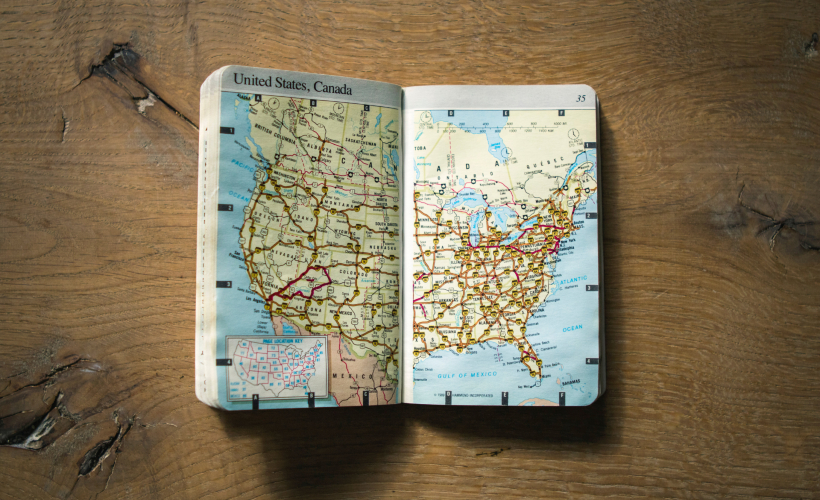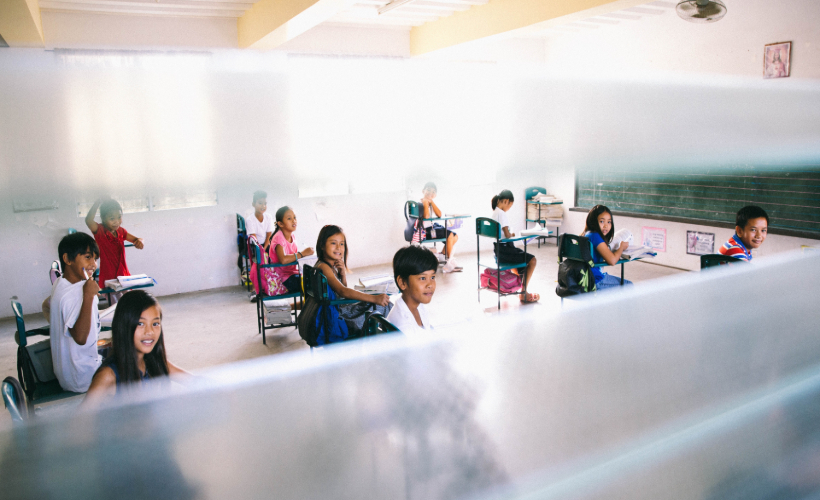
Last Updated: 20 March 2020
Following the outbreak of the COVID-19 virus, sometimes known simply as coronavirus, governments around the world have begun imposing travel restrictions and bans to mainland China and other countries impacted by the health crisis.
In the latest travel advisories, the USA has issued a travel ban to 26 countries in the Schengen Area free movement zone in Europe. The Ministry of Health and Family Welfare in India has suspended all visas granted to nationals of France, Germany, and Spain on or before March 11.
With so much information subject to change on a daily basis (should you even be travelling right now?), there are cybercriminals that are taking advantage of the situation by spreading malware through Coronavirus-centric applications and using it as an opportunity to steal browsing history, cookies, passwords, cryptocurrency keys, credit card details, and more.
To keep travellers up to date, we’ve compiled a list of advisories from around the world concerning entry bans and other travel restrictions complete with official websites to refer to for those still travelling in the time of the COVID-19 pandemic.

ASIA
| COUNTRY | THE SITUATION |
| Bahrain | Visitors and airline crew who have transited through or have been in Mainland China, Hong Kong, Iran, Iraq, Italy, Japan, South Korea, Malaysia, Singapore, or Thailand in the past 14 days, are not allowed to enter Bahrain.
This does not apply to nationals of Kuwait, Oman, Qatar, Saudi Arabia, and the United Arab Emirates, or residents of Bahrain, but for those who have transited or have travelled to the above countries. A medical examination upon arrival is required and people may be quarantined for a period not exceeding 14 days. Travel and health advisory updates are available here. |
| Bangladesh | Nationals of Mainland China and passengers with a Chinese Taipei passport, a Hong Kong passport, or a Macao passport travelling to Bangladesh can no longer obtain a visa on arrival and must fill in a Health Clearance Form provided by the cabin crew.
Travel and health advisory updates are available here. |
| Brunei | Entry ban has been imposed on visitors who have visited Hubei within the past 14 days and anyone holding a passport from the People’s Republic of China issued in Hubei.
The Ministry of Health has also added Iran and Italy to the travel ban list that includes China, Italy, Iran, and South Korea. Passengers that have been to the listed countries in the past 14 days will not be allowed to enter the country, including transit passengers. After the number of confirmed cases rose to 50, on 15 March, the government announced that they are barring all citizens and foreign residents from leaving the country. Travel and health advisory updates are available here. |
| Cambodia | Cambodia has announced a ban on the entry of foreigners from Italy, Germany, Spain, France, and the USA for 30 days, effective March 17.
A Ministry of Health statement released banned the entry of foreigners from the five countries, with no news for other countries with high number of cases, such as Iran, South Korea, Japan, or China. Travel and health advisory updates are available here. |
| India | As of March 13, all tourist visas have been suspended until April 15 in a bid to contain the spread of the novel virus. This does not include diplomatic, official, U.N. or international organisations, employment, and project visas.
Travellers who have been to China, France, Germany, Iran, Italy, Japan, South Korea, or Spain on or after February 1, 2020, will also be denied entry. Travel and health advisory updates are available here. |
| Indonesia | Passengers and airline crew who have been in Mainland China in the past 14 days are not allowed to enter or transit in Indonesia, unless they are Indonesian nationals or residents of Indonesia.
New policy restrictions also see people who have travelled to the Lombardi, Venetto, Emilia-Romagna, Marche and Piedmont regions in Italy; Daegu and Gyeongsangbuk-do in South Korea, and Tehran, Qom and Gilan in Iran prohibited from entering the country. Travel and health advisory updates are available here. |
| Iran | Nationals of Mainland China with a normal passport, passengers with a Hong Kong passport and passengers with a Macao passport are no longer visa-exempt. However, they can obtain a visa on arrival. They are required to clear their medical and health checks upon arrival following which they will be given a certificate.
Travel and health advisory updates are available here. |
| Iraq | Passengers who have been in Bahrain, Mainland China, Hong Kong, Iran, Italy, Japan, South Korea, Macao, Singapore or Thailand in the past 14 days, are not allowed to enter Iraq. This does not apply at Erbil (EBL) and Sulaymaniyah (ISU).
Nationals of Iraq who after 1 January 2020 visited Bahrain, Mainland China, South Korea, Iran, Italia, Japan, Kuwait, Singapore, or Thailand, when arriving at Erbil (EBL) and Sulaymaniyah (ISU), will be subject to quarantine and medical examination. Travel and health advisory updates are available here. |
| Japan | There have been at least 639 known cases of COVID-19 and 16 deaths in Japan. The travel ban has already been in place for Chinese citizens holding passports from infected areas, such as Hubei and Zheijang provinces, with similar restrictions placed on travellers from areas near Daegu, the South Korean city at the centre of that nation’s coronavirus epidemic, and travellers from Iran.
People from northern Italy were added to the banned travellers list March 11. Travel and health advisory updates are available here. |
| Jordan | Passengers who have been in Mainland China, Iran, Italy, or South Korea in the past 14 days are not allowed to transit or enter Jordan. This does not apply to nationals of Jordan, their spouses, or children.
Travel and health advisory updates are available here. |
| Malaysia | Passengers and airline crew who have been in the Hubei, Zhejiang, or Jiangsu Provinces in China as well as to Daegu and Cheongdo in South Korea in the past 14 days are not allowed to enter Malaysia.
Denmark joins China, South Korea, Japan, Iran, and Italy on Malaysia’s COVID-19 entry ban list, following a decision by the European country to go into lockdown. This does not apply to nationals of Malaysia and passengers who reside in Malaysia. As of 16 March, the state government of Sarawak announced that it will be issuing a 14-day Stay Home Notice (SHN) on all foreign and domestic travellers. Later the same day, the Malaysian government announced a nationwide Movement Control Order from 18 – 31 March. This order includes a restriction on interstate travel. Travel and health advisory updates are available here. |
| Maldives | Passengers – except for Maldivian nationals – who have been in Mainland China or Iran in the past 14 days are not allowed to enter the Maldives. Passengers and airline crew must fill in a Health Declaration Card and an Immigration Arrival Card before arriving in the Maldives.
Travel and health advisory updates are available here. |
| Mongolia | Passengers who reside or have been to Mainland China, Chinese Taipei, Hong Kong, or Macao in the past 14 days are not allowed to transit or enter Mongolia. In addition, those who have been to Italy, Iran, Japan, or South Korea in the past 14 days are not allowed to transit in or enter Mongolia.
Travel and health advisory updates are available here. |
| Myanmar | Government officials have restricted travel and increased health checks along the border with China. Nationals of Mainland China travelling to Myanmar along with passengers arriving from Mainland China on any Chinese airline can no longer obtain a visa on arrival.
Travel and health advisory updates are available here. |
| Philippines | Passengers who have transited through or have been in Mainland China, Hong Kong, or Macao in the past 14 days are not allowed to enter the Philippines. Passengers who have transited through or have been in the North Gyeongsang Province (including Daegu and Cheongdo Country) of South Korea in the past 14 days are also not allowed to enter the Philippines.
This does not apply to nationals of the Philippines or their spouses or children nor permanent residents of Philippines. They will be required to self-isolate for a period of 14 days from their arrival into the county. Philippine President Rodrigo Duterte has also ordered a lockdown of the entire metro Manila region from March 15 to April 14 due to the coronavirus pandemic. Travel and health advisory updates are available here. |
| Qatar | Passengers who have been to Mainland China, Iran, Japan, South Korea, or Singapore in the past 14 days will be required to self-quarantine for 14 days. Passengers arriving from Egypt are not allowed to enter Qatar. This does not apply to nationals of Qatar.
Travel and health advisory updates are available here. |
| Saudi Arabia | As of March 9, Saudi Arabia has extended its travel ban to nine countries over the coronavirus threat. Residents of Kuwait, the UAE, Bahrain, Lebanon, Syria, South Korea, Egypt, Italy, and Iran are also banned from entering the kingdom.
It’s reported that anyone who had spent time in any of the affected countries as listed above over the last 14 days are also banned from entering. The kingdom has also decided to stop air and sea flights between the sovereign states and the mentioned countries. Travel and health advisory updates are available here. |
| Singapore | As of late January, the government of Singapore has imposed an entry ban on all foreign nationals who travelled to mainland China in the last 14 days. Singapore has also suspended visas, including previously-issued visas, for passport holders from the People’s Republic of China. Latest updates see non-citizens or residents of Singapore who have travelled within 14 days to Iran, South Korea, or northern Italy banned from entering or transiting through the island city state.
Other travellers to Singapore who exhibit fever and/or other symptoms of respiratory illness, but who do not meet the clinical suspect case definition, may be required to undergo a COVID-19 swab test at any checkpoint. They may carry on with their journey after undergoing the test. Those with a positive result will be contacted and conveyed to the hospital. All travellers, including citizens and residents, who do not comply with the testing or who cannot be contacted subsequently may face penalties under Singapore law. The latest update from the Ministry of Health sees travellers entering Singapore with recent travel history to ASEAN countries, Japan, Switzerland, or the United Kingdom to be issued with a 14-day stay-home notice. This will take effect from March 16 and applies to all travellers, including Singapore residents, long-term pass holders, and short-term visitors. Travel and health advisory updates are available here. |
| Sri Lanka | Nationals of Mainland China can no longer obtain a visa on arrival in Sri Lanka. The government has also imposed a travel ban on all passengers from South Korea, Italy, and Iran.
Travel and health advisory updates are available here. |
| South Korea | Visitors who have been in the Hubei Province in the past 14 days are not allowed to transit or enter South Korea. Nationals of China with a passport issued in the Hubei Province are not allowed to enter South Korea. Korean visas issued by the Wuhan Consulate in the Hubei Province are also invalidated.
Travel and health advisory updates are available here. |
| Thailand | The Civil Aviation Authority of Thailand (CAAT) is requiring travellers from COVID-19 infected countries and territories to produce medical certificates prior to boarding their flights to Thailand to curb the spread of the novel coronavirus.
The CAAT has also issued an official announcement saying travellers from South Korea, China, Italy, Iran, Macau, and Hong Kong who fail to show their health certificates to authorities before boarding their flights to Thailand will not be allowed to continue their journey. The restrictions are in line with Thailand’s Communicable Diseases Act (2015). Travel and health advisory updates are available here. |
| Turkey | While the new coronavirus has rapidly spread around the world since it broke out in China’s Wuhan province in December, Turkey has remained remarkably free of the illness, only recording its first case in March.
International passengers are reportedly being screened with a thermal camera, with those displaying signs of a temperature referred to a medical adviser. New restrictions have also been introduced by the Turkish Ministry of Health — passengers without Turkish residency will not be permitted to enter Turkey within 14 days of a visit to China, South Korea, Iran, Iraq, or Italy. Travel and health advisory updates are available here. |
| Taiwan | Passengers who have been in Mainland China, Hong Kong, or Macao in the past 14 days are not allowed to enter the country. This does not apply to passengers with a Chinese Taipei, Hong Kong, and Macao passport holders or passengers and airline crew who have transited through affected countries without leaving transit areas.
Passengers arriving from Iran, Italy, or South Korea must be in home quarantine for 14 days. Travel and health advisory updates are available here. |
| United Arab Emirates | Nationals of the United Arab Emirates are allowed to enter with a national ID card if they left before 28 February 2020. Nationals of Bahrain, Kuwait, Oman, Qatar, and Saudi Arabia are no longer allowed to enter the United Arab Emirates with a national ID card and must have a passport.
Based on the travel advisory restriction issued by United Arab Emirates government, nationals of United Arab Emirates are not allowed to travel to Iran or Thailand. Travel and health advisory updates are available here. |
| Vietnam | Passengers who have been in or transited through Mainland China in the past 14 days are not allowed to enter Vietnam. This does not apply to passengers who travel for diplomatic or official purpose. Also, this rule does not apply to Vietnamese nationals or those who reside in Vietnam.
Those who travel for diplomatic or official purpose will undergo a medical examination at the border before being allowed to enter the country. Passengers who have been to or transited through South Korea will be quarantined. Finally, travellers who have been to or transited through Iran or Italy in the past 14 days will be quarantined for 14 days. Nationals of Italy and South Korea with a normal passport are no longer visa exempt. Travel and health advisory updates are available here. |

OCEANIA
| COUNTRY | THE SITUATION |
| Australia | Passengers who have transited through or have been in Mainland China in the past 14 days are not allowed to transit or enter Australia. In addition, those who’ve transited through or have been in Iran on or after 1 March 2020 are also not allowed to enter Australia for 14 days, from the time they left or transited through Iran.
The government has also since extended travel restrictions to those from South Korea’s Daegu Province and is urging Australians to reconsider their need to travel to South Korea. These restrictions do not apply to airline crew or Australian nationals, their immediate family members, permanent residents of Australia, and their immediate family members. Instead, they will be required to self-isolate for a period of 14 days from their arrival into Australia. On 19 March, Prime Minister Scott Morrison announced that Australia will be closing its borders for at least 6 months to non-residents. The ban will come into force at 9PM on 20 March. Travel and health advisory updates are available here. |
| New Zealand | Passengers who have transited through or have been in Mainland China or Iran on or after 2 February 2020, will not be allowed to transit or enter New Zealand.
Nationals of Australia and New Zealand, as well as their immediate family members, who have transited through or have been in Mainland China or Iran in the past 14 days must contact immigration border operations before boarding. This also applies to permanent residents of New Zealand and their immediate family members. Like Australia, New Zealand has also closed its borders to anyone not a citizen or permanent resident. Prime Minister Jacinda Ardern confirmed this on 19 March with the ban taking effect the same night at 11:59PM. Travel and health advisory updates are available here. |

AFRICA
| COUNTRY | THE SITUATION |
| Egypt | As an increasing number of countries have banned flights, closed borders or put in place restrictions on travel to and from Egypt, Prime Minister Mostafa Madbouly said that Egypt will suspend all air traffic at its airports from March 19 until March 31.
Travel and health advisory updates are available here. |
| Morocco | On March 14, Morocco said it would halt flights to and from 25 countries, extending an earlier ban that covered China, Spain, Italy, France, and Algeria.
Countries affected now also include Austria, Bahrain, Belgium, Brazil, Canada, Chad, Denmark, Egypt, Germany, Greece, Jordan, Lebanon, Mali, Mauritania, the Netherlands, Niger, Norway, Oman, Portugal, Senegal, Switzerland, Sweden, Tunisia, Turkey, and the UAE. The Moroccan tourist board said it had authorised rescue flights, but chaos is reported at Marrakech and Agadir airports caused by a lack of information from airlines and embassies that are struggling to cope with the scale of repatriations. Travel and health advisory updates are available here. |
| South Africa | President Cyril Ramaphosa has said on March 19 the number of confirmed coronavirus cases in South Africa has jumped to 150.
The southernmost nation on the continent has since barred entry to foreign travellers arriving from or transiting through high-risk countries, including Italy, Iran, South Korea, Spain, Germany, France, Switzerland, the US, the UK, and China. South Africans were also advised to cancel or postpone all non-essential foreign travel. Travel and health advisory updates are available here. |
| Ivory Coast | The Ivorian authorities have announced the suspension of all flights to and from countries with more than 100 cases of coronavirus from 19 March for an unspecified period.
The Ivorian authorities are currently preventing individuals, except Ivorian citizens and foreign nationals resident in Côte d’Ivoire, from entering Côte d’Ivoire if travelling from a country that has 100 cases of coronavirus. Travel and health advisory updates are available here. |
| Tunisia | As of March 16, Tunisia has closed mosques, cafes, markets, land borders, and suspended international flights.
The government has also imposed a curfew starting on March 18 in tightening the measures to counter the spread of COVID-19. While the number of cases in Tunisia is relatively low compared to other countries, Prime Minister Elyes Fakhfakh said the North African country had also announced several measures to ensure the country is able to contain the disease – including banning gatherings and markets, while work hours for state employees would be reduced to five hours. Travel and health advisory updates for the region are available here. |

EUROPE
| COUNTRY | THE SITUATION |
| Austria | Citizens from countries outside the European Union who have been in coronavirus hot spots, which the Austrian Foreign Ministry currently lists as France, Iran, Italy, South Korea, Spain, Switzerland, and parts of China in the past 14 days will have to present a medical certificate confirming a negative test result for COVID-19 upon entry to the country.
The Austrian government has also announced that all passengers, regardless of citizenship, will also have to provide a certificate confirming a negative test result if they’re entering Austria from Italy, Switzerland, and Liechtenstein from March 16 onwards. The certificate, which must be dated within four days of arrival, needs to be signed by a licensed medical practitioner and be in English, German, Italian, or French. Travel and health advisory updates are available here. |
| Croatia | Travellers arriving in Croatia from specific hotspots, such as Italy, Iran, and China’s Hubei province, must spend two weeks in government quarantine facilities at the expense of the traveller.
The Croatian government also implemented health monitoring for passengers from several countries affected by the virus like Spain, USA, and Sweden. Travellers from these countries should self-isolate for two weeks, according to officials, and report their condition to the nearest epidemiologist for further instructions. Travel and health advisory updates are available here. |
| Czech Republic | The Czech Republic, which declared a state of emergency, has banned passengers from high-risk countries and prohibited Czech citizens from visiting these 15 countries — United Kingdom, Italy, Spain, Norway, Holland, Belgium, Denmark, France, Austria, Germany, China, South Korea, Iran, Switzerland, and Sweden.
As of March 14, bus, train, and boat transport from the Czech Republic to Germany and Austria have also been suspended. Air travel has also been partially restricted. The latest update sees the country facing a possible complete quarantine and lockdown to prevent the virus from spreading, with the Prime Minister commenting that violators could be fined up to CZK3 million (approximately USD127,000). Travel and health advisory updates are available here. |
| Denmark | As of March 14, Denmark has closed its borders to most foreign travellers for the coming month.
“All tourists, all travel, all vacations, and all foreigners who cannot demonstrate a credible reason to enter Denmark will be denied entrance at the Danish border,” Mette Frederiksen, the Prime Minister, said at a news conference. Travel and health advisory updates are available here. |
| France | While there’s no official news regarding border closures with almost 4,500 infected, Prime Minister Edouard Philippe announced that the nation will shut most shops, restaurants, and entertainment facilities from midnight March 14.
Speaking at the news conference, he said that all non-indispensable locations, notably cafes, restaurants, cinemas, nightclubs, and shops will be closed and movements must be limited to slow the spread of the novel coronavirus. The official statement from the government also advises against travel to Oise, Haute-Savoie, Morbihan, Haut-Rhin, Corse du Sud, Aude, and Calvados departments where cases have been reported. Travel and health advisory updates are available here. |
| Germany | With 5,426 coronavirus cases and 11 deaths, Germany is said to be closing its borders with France, Austria, and Switzerland from March 16 as a step-up in efforts not just to contain the COVID-19 pandemic but also to prevent panic bulk purchases by foreigners. This has reportedly caused supply problems in areas around the borders.
Travel and health advisory updates are available here. |
| Greece | Aside from Greece’s Prime Minister Kyriakos Mitsotakis’ announcement on Twitter that the country wouldn’t be accepting any new asylum applications for at least one month due to the COVID-19 outbreak, there seems to be little to no news regarding travel restrictions for travellers entering Greece.
Travel and health advisory updates are available here. |
| Iceland | The Government of Iceland has issued a statement to advise Icelanders not to travel abroad under the current circumstances. Meanwhile, Icelanders travelling abroad are encouraged to consider returning to Iceland earlier than planned.
Airports will remain open and flight operations continue. There are no restrictions in place for travel to Iceland and no restrictions for tourists, as they are not likely to come into contact with vulnerable groups. Travel and health advisory updates are available here. |
| Italy | Where the virus has taken hold and already killed more than 1,000 people, government officials have implemented strict orders placing the country on lockdown in an attempt to stop the spreading infection.
All travellers flying into Italy are subject to temperature screening in Italy’s major airports, and the country has suspended flights from China and Taiwan. Travel and health advisory updates are available here. |
| Norway | Norwegian Directorate of Health said that regardless of whether they have symptoms or not, anyone coming into Norway from outside Nordic countries should be quarantined at home for two weeks from their arrival. The measure is set to last through to end of March.
The municipality for Oslo, the nation’s capital, have also stated that Norwegian borders will be shut down for incoming non-resident travellers who do not have a critical reason to be in Norway beginning March 16. Travellers not residing in Norway are encouraged to leave the country as soon as possible and main airports will remain open so that tourists travelling in Norway can get back home. Travel and health advisory updates are available here. |
| Poland | As of March 15, Poland will ban foreigners from the country, suspend international air and rail services for citizens, and border controls will be temporarily restored, the Chancellery of the Prime Minister of Poland said on Twitter. All Polish citizens returning from abroad must voluntarily quarantine for two weeks, according to officials.
Travel and health advisory updates are available here. |
| Russia | The Russian government banned the entry of Chinese nationals, except for transit, on February 20, and on February 28 banned the entry of all Iranian citizens. On March 1, Russia restricted travel by South Koreans, mandating they enter the country only via Sheremetyevo International Airport in Moscow. As of March 13, the government banned Italian citizens from entry into Russia.
On March 14, Russian officials announced plans to close the country’s land border with Poland and Norway to foreigners, and effective March 16, air travel between Russia and countries of the European Union, Norway, and Switzerland will be limited to flights between Moscow and capital cities. Travel and health advisory updates are available here. |
| Spain | With the number of deaths doubling over the weekend, Spain becomes the second country in Europe to impose sweeping restrictions on the public on March 14, telling everyone to stay indoors, with limited exceptions.
As the World Health Organization (WHO) says Europe is now the “epicentre” of the pandemic, the country is set for a 15-day state-of-emergency lockdown. Travel and health advisory updates are available here. |
| Ukraine | Ukraine has closed 70 per cent of its land ports of entry, and international train service between Ukraine and Slovakia has also been suspended.
Officials are screening temperatures for all arriving passengers, and if someone is found to have a temperature of 38oC or higher or is exhibiting flu-like symptoms, then they may be referred to a hospital in Kyiv for additional testing and possibly up to 14 days of quarantine. Travel and health advisory updates are available here. |
| United Kingdom | The government advises against all travel to the province of Hubei; and advises against all but essential travel to the rest of mainland China.
British Airways has suspended all flights to mainland China and cancelled one of its two daily flights to Hong Kong while Virgin Atlantic has suspended its only flight to mainland China. EasyJet has also suspended all travel to and from Spain. Travel and health advisory updates are available here. |

NORTH & SOUTH AMERICA
| COUNTRY | THE SITUATION |
| Argentina | In a statement on March 12, the country said it would stop issuing visas to travellers and suspend flights from countries including the USA, China, Japan, South Korea, and European countries.Starting March 17, Argentina is halting all flights from Europe and the USA for at least 30 days. People arriving to Argentina from areas with a significant number of cases — including the USA, Europe, South Korea, Japan and Iran — will be required to go into quarantine for 14 days.Health screening measures are in place at the Buenos Aires International Airport and the Argentine authorities may quarantine individual travellers, including passengers transiting the International Airport. Failure to comply with the quarantine measure may be a criminal offense.Travel and health advisory updates are available here. |
| Brazil | As of March 14, Brazil had not imposed travel restrictions. Its health ministry recommended that all passengers who arrive on international flights remain at home for at least seven days and seek medical help if they develop coronavirus symptoms.
In an interview with BBC News Brazil, leaders of the Ministry of Health did not rule out the adoption of tougher social isolation measures whose objective is to try to stop the spread of the disease. Travel and health advisory updates are available here. |
| Canada | Canada has not banned the entry of any foreigners. However, it has required that anyone arriving in Canada from Hubei Province in China, Italy, or Iran to self-isolate and stay at home for 14 days and contact public health authorities within 24 hours of arrival.
The government added that all other passengers returning from overseas consider self-isolating for 14 days. Passengers who were on the cruise ship Diamond Princess are also subject to a mandatory 14-day isolation at a quarantine facility upon arrival in Canada. Travel and health advisory updates are available here. |
| Colombia | The government announced on March 13 that it would shut down the seven border crossings along its border with Venezuela. Starting March 16, Colombia will also bar entry to any foreigner who has been to Europe or Asia within the past 14 days.
Colombians who return from affected areas will be subject to a mandatory quarantine for 14 days. Travel and health advisory updates are available here. |
| Mexico | No entry restrictions are issued for ports and airports, however, random screenings of passengers on international flights and cruises may occur, and travellers suspected of being infected will have to isolate themselves for two weeks, as established by the WHO protocols.
Travel and health advisory updates are available here. |
| United States of America | On March 11, the United States barred the entry of all foreign nationals who had visited China, Iran, and a group of European countries during the previous 14 days.
The ban applies to countries in the Schengen Area, which are Austria, Belgium, Czech Republic, Denmark, Estonia, Finland, France, Germany, Greece, Hungary, Iceland, Italy, Latvia, Liechtenstein, Lithuania, Luxembourg, Malta, Netherlands, Norway, Poland, Portugal, Slovakia, Slovenia, Spain, Sweden, and Switzerland. Effective March 16, the ban will also apply to foreign nationals departing from the United Kingdom and Ireland. American citizens and legal permanent residents who have been in high-risk areas and return to the USA are required to fly to one of the following 13 airports: Boston-Logan International Airport (BOS), Massachusetts
Travel and health advisory updates available here. |


